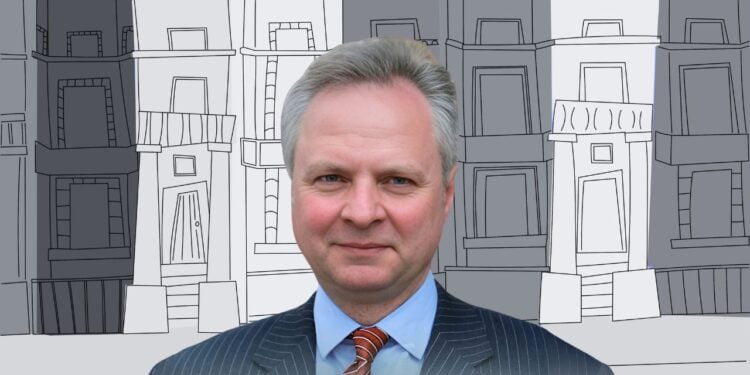- Many London-based small- and medium-sized operators are lamenting how difficult conditions are becoming with prospective tenants finding it impossible to commit to taking space.
- Brokers are also reporting a fall in the number of enquiries and that enquiries for larger spaces, by which I mean more than 20 desks, are taking much longer to close than in 2024.
- A recent IWG results presentation video given by the CEO Mark Dixon and his CFO Charlie Steele felt very downbeat, even if the results themselves were quite good.
Welcome to the first part of the new Jonathan’s Flex Diary Series, in which I will be reflecting on what I see happening around me in the coworking and managed office sectors from different perspectives — as an operator of coworking locations, as a consultant and former fund manager, and as a board member of the Flex Space Association (FlexSA).
My comments will be my own and do not reflect the views of the various organisations.
Let me start with a question: What is the state of the industry in your area?
In the smaller towns in the North West of England where my locations are based, conditions remain quite positive with good levels of occupancy. A slight delay we recently faced in refilling a large space when tenants left just seemed normal.
I had to revise my thoughts slightly, however, when I had the chance to attend a FlexSA local meeting in central London. Sponsored by PONT Technologies, the meeting was a sell-out with the room packed with mostly London-based small- and medium-sized operators.
What surprised me was the rather downbeat attitude of the owners and CEOs there. Most were lamenting how difficult conditions were becoming with prospective tenants finding it impossible to commit to taking space.
Most attributed this situation to economic uncertainty, both in the U.K. and globally, partly courtesy of He Who Must Not Be Named and partly due to domestic factors.
London does react faster to economic trends than provincial cities do, and smaller towns even later, so that may explain why we haven’t noticed any direct effect yet.
Brokers are also reporting a fall in the number of enquiries and that enquiries for larger spaces, by which I mean more than 20 desks, are taking much longer to close than in 2024. Watch this space.
Talking of downbeat, I took the time to watch the IWG results presentation video given by the CEO Mark Dixon and his CFO, Charlie Steele. You should watch it and judge for yourself, but to me, Mark Dixon’s presentation was just that, very downbeat.
I’m not talking about the results themselves, which were very decent, even quite good in parts. I’m talking about the way he delivered them, matter of factly with no excitement or passion.
He might say that he was just trying for an air of quiet satisfaction perhaps, but it just seemed dull to me. And if it seemed downbeat to me, I dread to think what it seemed like to U.S. investors, who are the audience he will have to impress when he switches the IWG main listing from the London Stock Exchange to New York.
I couldn’t help thinking that Mark and Charlie make an odd pair, too. Mark with his grey beard is definitely showing the years, whereas Charlie seemed enthusiastically immature by comparison. I dare to suggest that they might like to practise their act a few times more before their first night on Broadway if they want to switch to New York to help raise the share price.
Apart from global economic conditions and the increased risk of conflict, we have a dark cloud on the horizon locally in the form of revisions to the English business rates or property tax system that our Government has put out for consultation.
In the worst case, these changes could cost coworking center clients thousands in extra taxes each year. FlexSA is working hard lobbying against the changes, but it’s difficult to see how things will turn out. More on this later.
On a happier note, I was pleased to be invited to the launch party of the new Hubhub coworking and managed office centre, Worship Square, in London’s EC2 banking district. Owned by HB Reavis, Hubhub is another of the recent trend of landlord owned operators.
The coworking space was mainly basement space as the upper floors have all been leased to conventional tenants, but it was very well designed and looked very comfortable. Thanks to a deal with the London Borough of Hackney, the local municipality, the space is also extremely affordable on a day pass or monthly basis. I wish them well in their occupancy build up.



 Dr. Gleb Tsipursky – The Office Whisperer
Dr. Gleb Tsipursky – The Office Whisperer Nirit Cohen – WorkFutures
Nirit Cohen – WorkFutures Angela Howard – Culture Expert
Angela Howard – Culture Expert Drew Jones – Design & Innovation
Drew Jones – Design & Innovation Jonathan Price – CRE & Flex Expert
Jonathan Price – CRE & Flex Expert













